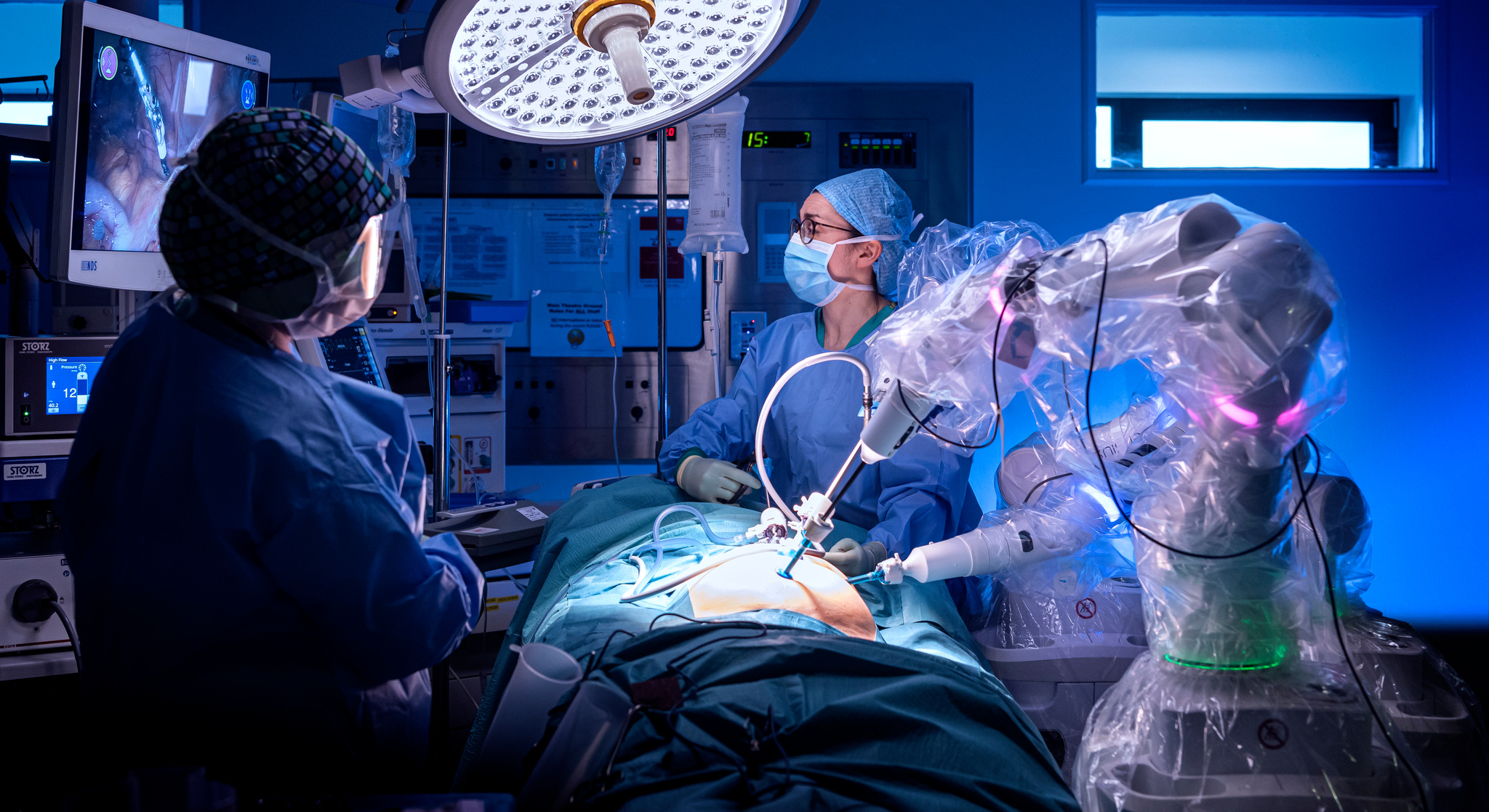
AI-Powered Robots Set to Revolutionize HealthcareAI-Powered Robots Set to Revolutionize Healthcare Artificial intelligence (AI) is rapidly transforming various industries, and healthcare is no exception. AI-powered robots are poised to revolutionize healthcare by enhancing efficiency, precision, and accessibility. Advanced Diagnostics and Treatment: AI-powered robots equipped with advanced imaging systems can assist surgeons in detecting and diagnosing diseases with greater accuracy and speed. For example, robots can identify cancer tumors in real time during surgery, enabling surgeons to make more precise and targeted incisions. Surgical Precision and Efficiency: Surgical robots offer exceptional precision and dexterity, allowing surgeons to perform complex procedures minimally invasively. These robots can automate tasks such as suturing and tissue manipulation, reducing the risk of errors and improving patient outcomes. Personalized Medicine: AI-powered robots can analyze vast amounts of patient data to tailor treatment plans to individual needs. By considering factors such as genetic makeup, lifestyle, and medical history, robots can recommend personalized therapies and interventions that optimize patient outcomes. Remote Monitoring and Care: AI-powered robots can monitor patients’ vital signs and health data remotely, enabling timely interventions and preventative measures. These robots can also provide remote consultation and medication reminders, enhancing accessibility to healthcare for patients in remote areas or with limited mobility. Enhanced Rehabilitation and Therapy: Robots can play a crucial role in rehabilitation and therapy. They can provide personalized exercises and assistance with physical therapy, promoting recovery and improving mobility. Additionally, robots can engage patients in interactive cognitive and emotional therapy, fostering patient engagement and well-being. Challenges and Potential Barriers: While AI-powered robots offer immense potential, there are also challenges to be addressed. These include concerns over data privacy, ethical considerations, and the potential displacement of human healthcare professionals. Conclusion: AI-powered robots are set to reshape the future of healthcare. By enhancing precision, efficiency, and accessibility, these robots have the potential to improve patient outcomes, reduce healthcare costs, and empower healthcare professionals. As AI technology continues to advance, the healthcare industry is poised for further transformative innovations that will ultimately benefit patients and revolutionize the delivery of healthcare.
Posted inNews